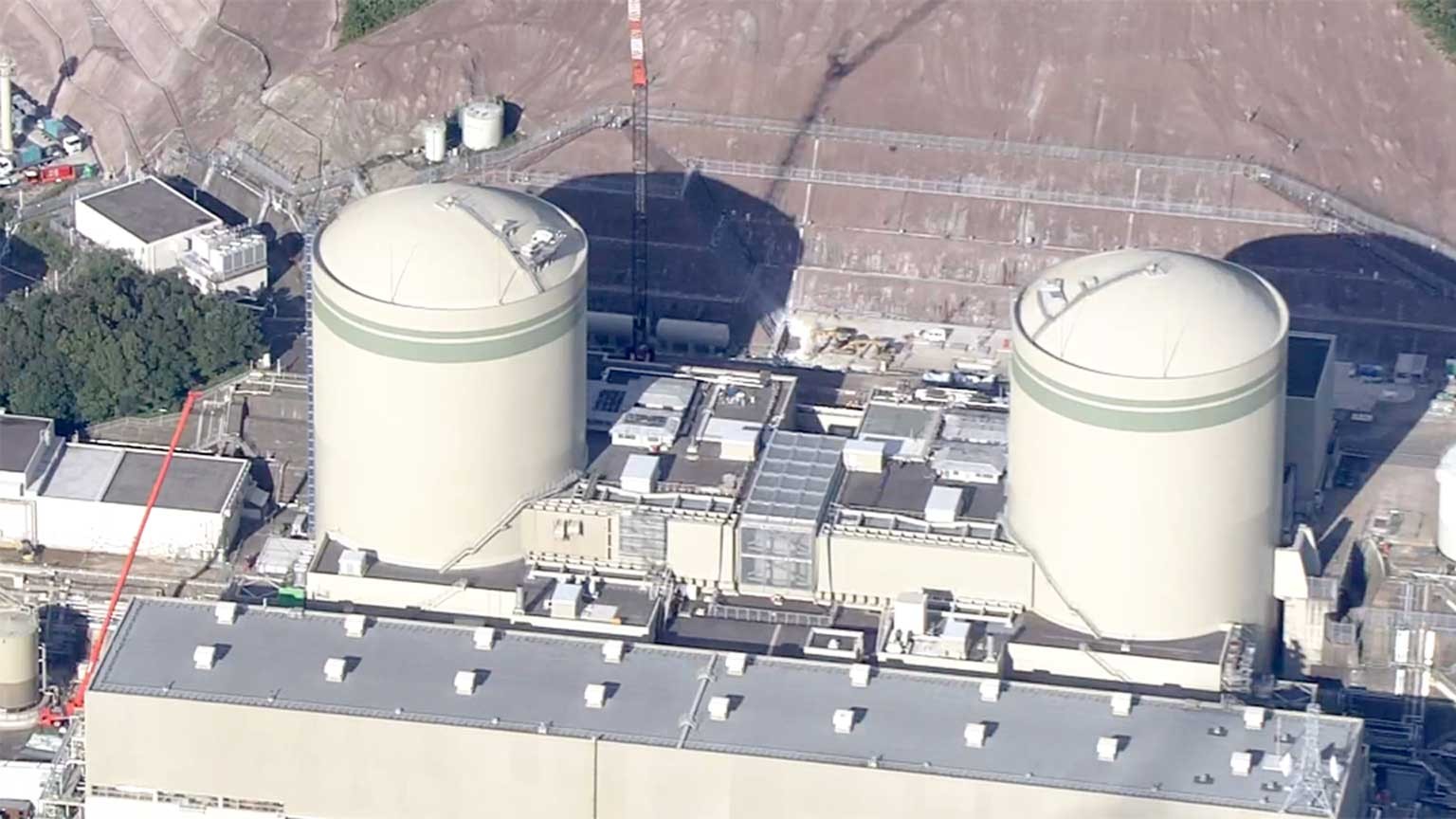The full Upper House session approved the legislation by a majority vote, with support from the ruling Liberal Democratic Party, its junior coalition partner Komeito and others.
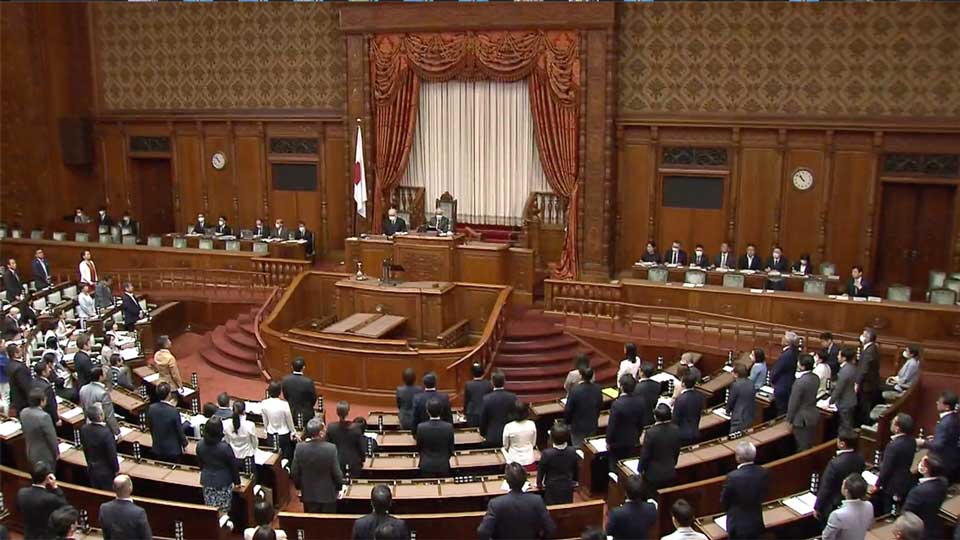
The Lower House of the Diet passed the legislation in April.
Revised law requires inspections
The revision allows nuclear reactors to remain operational beyond the 60-year cap, excluding time spent for inspections and testing.
Reactor equipment and devices in operation for 30 years will be required to undergo inspection for deterioration at least every 10 years. Operators will also be required to draw up management plans and get them approved by the Nuclear Regulation Agency (NRA).
Citizens protest revision in front of Diet
Citizen groups opposing the bill gathered in front of the Diet building to protest its passage.
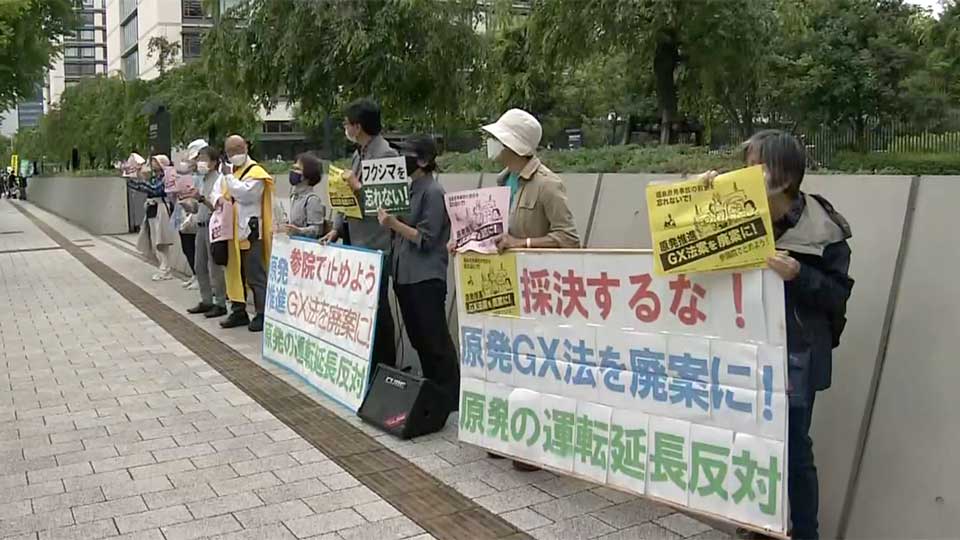
One demonstrator from an environmental group said the bill passed without adequate debate, and that the government is making a major policy turnaround in favor of the nuclear power industry.
Regulatory approval not unanimous
Prime Minister Kishida Fumio instructed officials to consider extending nuclear reactors' operating period in August 2022.
Officials from the NRA and the Ministry of Economy, Trade and Industry held at least seven informal meetings about the revisions. They presented draft provisions to the Nuclear Reactor Regulation Law, which is under the NRA's jurisdiction.
The NRA approved the plan by a majority vote in February, with four of its five committee members voting in favor. The regulator rarely decides on key issues without a unanimous vote.
Japan's Cabinet approved the bill in late February. The full session vote was delayed to allow time to dispel public concerns.
During deliberations in the Lower House, the ruling parties agreed on additional provisions after negotiations with Nippon Ishin Japan Innovation Party and the Democratic Party for the People.
One provision requires the government to seek cooperation from residents in urban areas consuming large amounts of electricity.

Soaring global energy prices, higher electricity costs
The revision came against the backdrop of soaring global energy prices, as Russia's exports of crude oil and natural gas to Group of Seven countries dropped due to economic sanctions for its invasion of Ukraine.
Seven out of Japan's 10 major electric power companies will raise their electricity prices by 15 to 39 percent from Thursday.
Costs are not the government's only priority. Japan aims to break away from dependence on fossil fuels to achieve carbon neutrality, and reduce greenhouse gas emissions to virtually zero in 2050.
NRA to be put to the test
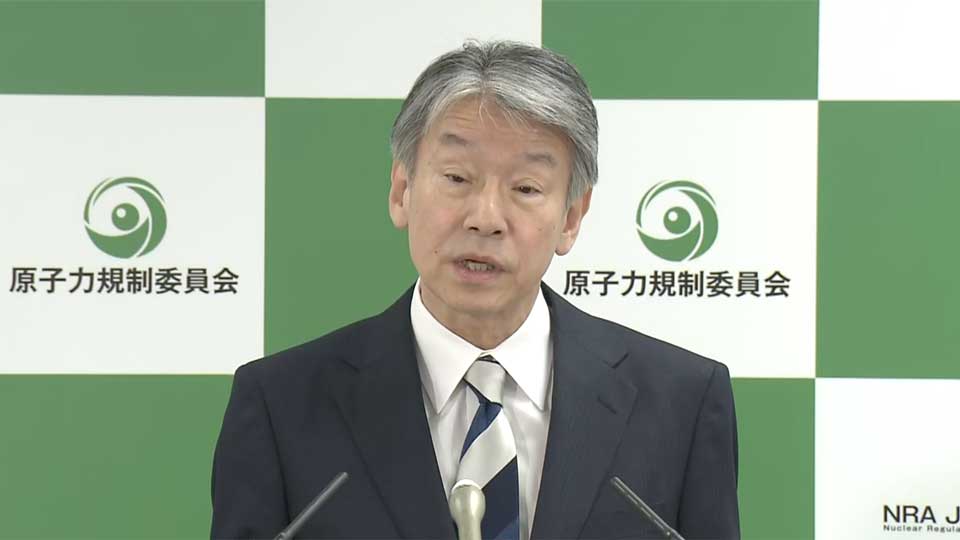
NRA Chairman Yamanaka Shinsuke said the bill's passage means "it's time for the NRA to be put to the test." He stated that it is the regulator's responsibility to thoroughly inspect nuclear reactors and ensure their safety.
Ikebe Kazuhiro, chairman of the Federation of Electric Power Companies of Japan, released a statement saying companies will take all possible measures in terms of supply and demand. These include making maximum use of renewable energy including nuclear power generation while ensuring safety, as well as taking steps to decarbonize thermal power generation.
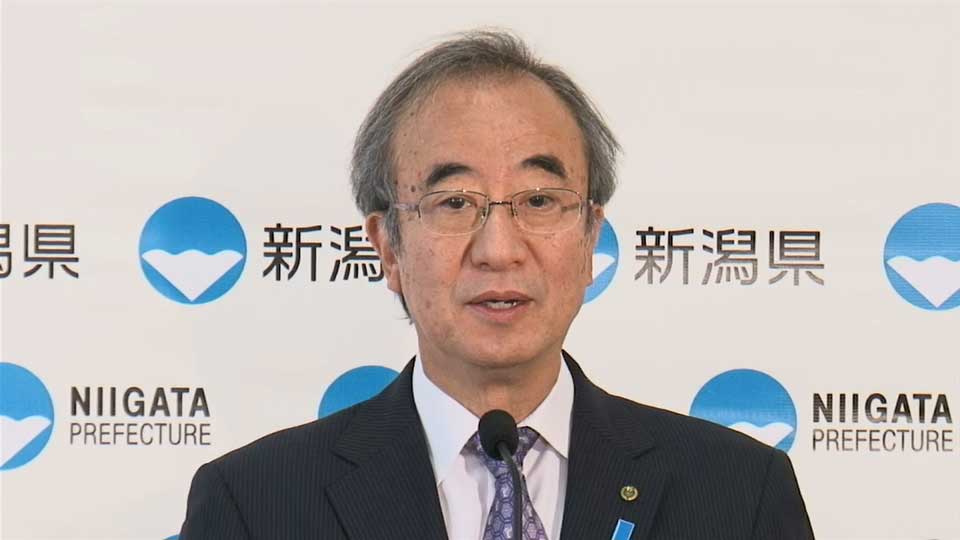
Tokyo Electric Power Company's Kashiwazaki-Kariwa Nuclear Power Plant is located in Niigata Prefecture. Hanazumi Hideyo, the prefecture's governor, said at a news conference that he wants the central government to have deeper discussions on how to position nuclear power in its overall energy policy.
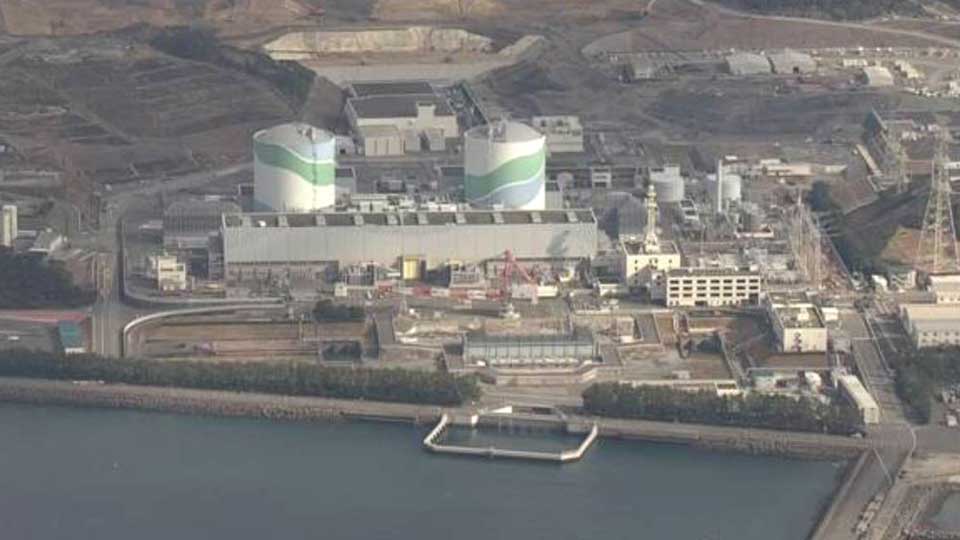
Kyushu Electric Power's Sendai nuclear plant is located in Kagoshima Prefecture. Its governor, Shiota Koichi, noted that the plant has been in operation for 40 years, and said ensuring its safety is a priority. He said that the central government needs to thoroughly explain the scientific basis for its policy change.
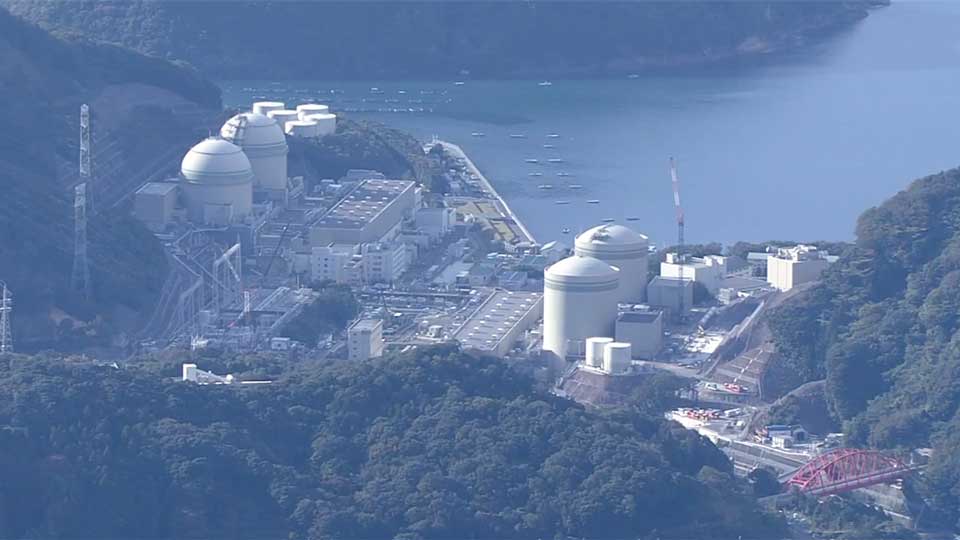
Fukui Prefecture has 15 nuclear reactors, the most of any Japanese prefecture. They include three that have been operating for at least 40 years and five operating for at least 30 years, excluding decommissioned units. Its residents expressed mixed views of the bill's passage.
Komori Hidemune, chairman of a company in Tsuruga City which sells equipment for nuclear power plant maintenance, said plant components are continuously replaced. He said he not only welcomes the bill's approval but also hopes that more plants are constructed, which would benefit the local economy. Komori added that he would like to see the government come up with an energy policy that allays concerns.

Ishiji Masaru, a member of a citizen group opposing nuclear power, said he feared that operating reactors for more than 60 years could cause unexpected problems. He said the revision's passage ignores lessons learned from Fukushima Prefecture's 2011 nuclear accident.
Voices from Fukushima
Fukushima Prefecture was the scene of Tokyo Electric Power Company's Fukushima Daiichi nuclear power plant disaster, in the wake of a massive earthquake and tsunami that struck the region. Its residents also had mixed responses to the revision.
A man in his 20s said he did not agree with expanding nuclear power use, considering the reputational damage the prefecture suffered as rumors circulated after the accident. But he said the change could not be helped, in light of soaring electricity costs.
A woman in her 70s said she wants all nuclear reactors to be scrapped. She said she does not understand why the decision was made, as decommissioning a reactor takes decades.
A university student in his 20s said the policy change is understandable due to rising electricity costs, but safety inspections should be thoroughly conducted to prevent further accidents and to gain the local people's trust.
Matsunaga Hideatsu was forced to evacuate from Okuma Town, where Fukushima Daiichi is located. The 71-year old returned to his hometown four years ago, after the evacuation order was lifted in some parts.
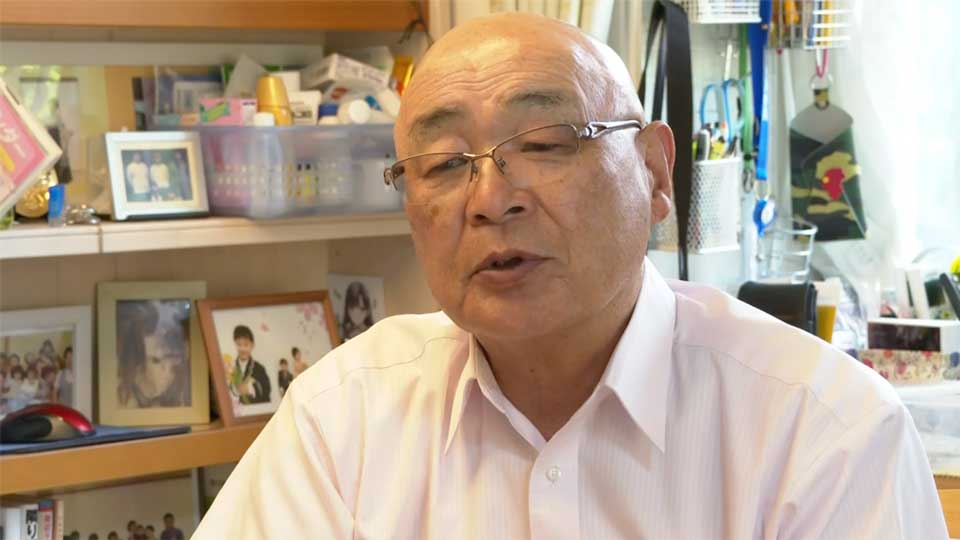
But Matsunaga was forced to move again within the town, because his land is now used as a site for interim storage of soil removed in decontamination operations. He said he is angry that 12 years after the disaster, people have forgotten the residents who had to evacuate, and that the government made its latest decision as if nothing had happened.
Matsunaga said he wants power companies to focus on other methods of generating electricity. He added that before the 2011 accident, he used to believe in "the myth" of nuclear power's safety.
